OCTOBER - Italy - General election
19/20 NOVEMBER - Italy: Rome - RP National Council - Motions of the Left
Historical References
France: a group of intellectuals sign the "Manifesto of the 121" which proclaims the right of insubordination for the conscripts deployed to Algeria.
Creation of the "Jeanson networks" to support and link the Algerian Liberation Front. These networks also launched campaigns against torture, and supported l’insoumission (insubordination) and deserters. (Maori 60)
November - U.S.A. John Kennedy is elected President.
OCTOBER - Italy - General election
"1960 was the year of TAMBRONI, of the people’s revolt against his government, with riots in Genoa and Rome, and deaths in Reggio Emilia and other cities; with the setting up of unitary committees for the Resistance on which, almost everywhere, the Radicals were the main point of reference, alongside the Socialists, Communists and Republicans. This turning point laid the groundwork for the centre-left of the years that followed. In the October local-government elections the Radical Party had presented its candidates on the Socialist lists, with considerable success: four Radical candidates, including Elio VITTORINI, were elected in Milan and three in Rome, with a grand total of about eighty town councillors, mostly in the provincial capitals.
The plan conceived by some of the members of the then ruling group (particularly Piccardi and Scalfari) that would "permit" the Radical Party to be absorbed by the Socialist Party, began to become evident." (CRB)

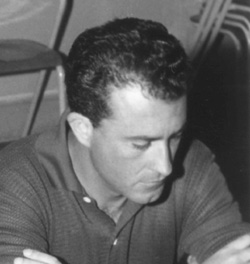
Leopoldo
Piccardi and Eugenio Scalfari
19/20 NOVEMBER - Italy: Rome - RP National Council - Motions of the Left
The "declarations of intent" signed by Marco PANNELLA and Giuliano RENDI were presented at the first meeting of the National Council held after the above events. These motions can rightly be considered as the charter of the "Radical left," on which the secular, libertarian, socialist and internationalist political alternative that characterized the Radical Party in the sixties and seventies was founded.
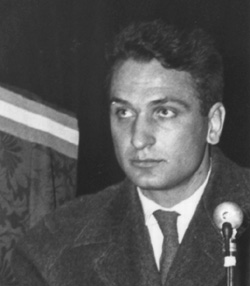
Marco Pannella
These declarations created a schism between second-generation Radicals: on the one side the "Radical left" (besides the signatories Gianfranco SPADACCIA, Sergio STANZANI, Franco ROCCELLA, Mauro MELLINI, Angiolo BANDINELLI, Massimo TEODORI, only some of whom were on the National Council); on the other, Giovanni FERRARA, and other Radicals who in the following years took different roads which, however, sometimes converged with that of the new Radical Party (Gerardo MOMBELLI, Claudio SIMONELLI, Stefano RODOTA, Lino JANNUZZI, Piero CRAVERI, etc.). The established ruling group of the RP was apparently united in rejecting them. But this unity crumbled in the dramatic break-up that occurred in the following months, while the "Radical left" was already establishing a close relationship with Ernesto ROSSI whose ideals and politics it shared.
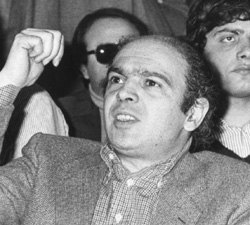
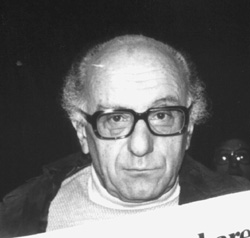
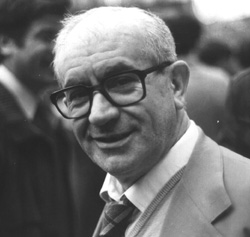
Spadaccia, Stanzani, Roccella
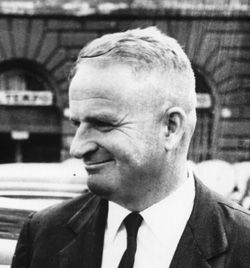
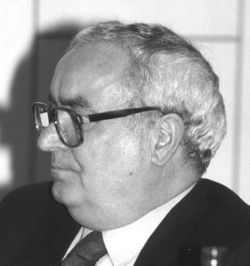
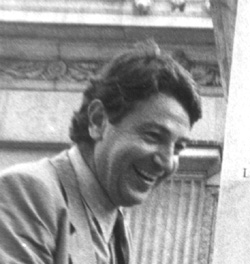
Mellini, Bandinelli and Teodori
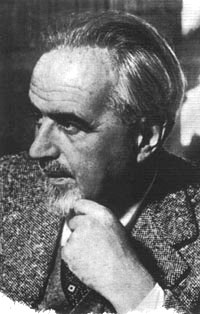
Ernesto
Rossi
The four motions dealt with relations with the Catholic world, Article 7 of the Italian Constitution (on the Concordat between Church and State), relations with the Italian Socialist Party (PSI), the Magyar revolt of 1956 and, lastly, conventional and nuclear disarmament.
More specifically the - "Declaration of intent concerning the Magyar revolt of October-November 1956" expressed the profound emotion experienced by all the Radicals on the fourth anniversary of the Hungarian uprising, and their eagerness to establish a new relationship with the movements of the democratic left.
In the Declaration of intent on foreign policy, conventional and nuclear disarmament, and a peace policy, the Radical Party set itself the following aims:
- the strict defence of the UN and its progressive empowerment;
- the constitution of a European federation through direct elections;
- conventional and nuclear disarmament throughout the territory of Europe, with the subsequent withdrawal of armies from all countries in the territory;
- a separate and unifying peace with the two Germanys, and the subsequent denouncement of the NATO military pact (without deferment to the 1961 institutional deadline) and of the Western European Union (WEU);
- the proclamation of the right to insubordination and civil disobedience of all citizens who are against rearmament, war, the division and competition of national States..."
Finally proposing "the federation or, at least, the common organization of all the socialist, popular and revolutionary movements striving for the installation of a regime of democracy and liberty in Western Europe."